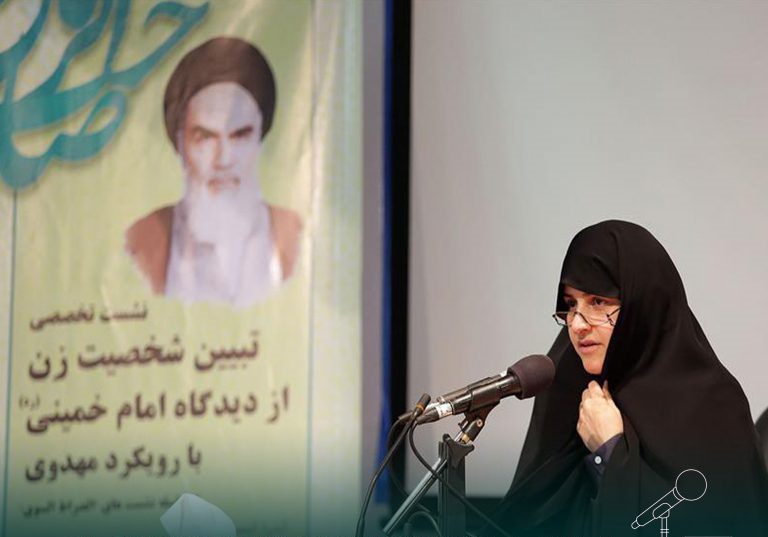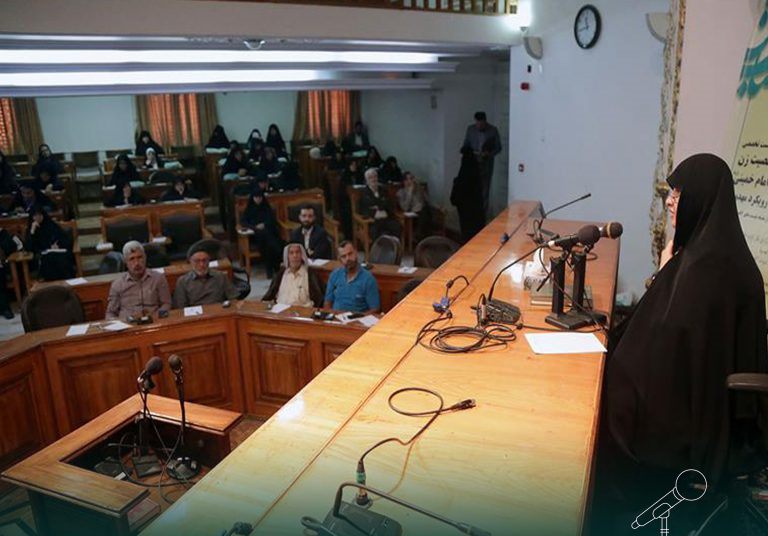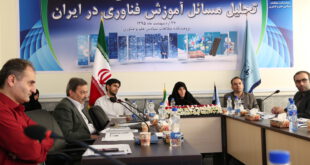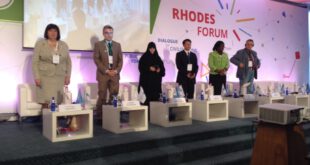Specialized meeting on status of women from Imam Khomeini (RA)’s viewpoint held in Razavi University of Islamic Sciences

Imam Khomeini’s masterpiece was the integration of religion with politics. Religious policy is realized when not only the constitution, but all governance mechanisms including development plans, strategies and social laws are be based on the principles and values of religion, and the weakness of our society is exactly the avoidance from religious politics.
Commemorating the anniversary of Imam Khomeini’s death, Dr. Jamileh Sadat Alamolhoda stated in the specialized meeting on explaining the status of women from Imam Khomeini (RA)’s viewpoint in the assembly hall of Razavi University of Islamic Sciences: “Imam Khomeini’s masterpiece was the integration of religion with politics in such a way that religion is the foundation of politics, not that only a part of politics deals with religion, and of course it is difficult for many to understand this relationship between religion and politics and believing in it.
She said: “Imam Khomeini’s masterpiece was the integration of religion with politics. Religious policy is realized when not only the constitution, but all governance mechanisms including development plans, strategies and social laws are be based on the principles and values of religion, and the weakness of our society is exactly the avoidance from religious politics.” Alamolhoda acknowledged: “When the elites refrain from religious politics, it is the channels of power and wealth that get involved and take over the affairs of the society.” Referring to concrete examples during the elections, she stated: “Power and wealth channels take the control of the society’s political affairs and change the direction of society by manipulating the pattern of social demand in two ways, i.e., standardizing and creating needs.” Referring to the principles of democracy and the role of the majority, Dr. Alamolhoda said: “The presence of women and youth in the political arena should be appreciated. It is necessary for women and youth to be the leaders of political movements, not the background actors of capitalist development.” The head of the Education Commission of the Secretariat of the Supreme Council of the Cultural Revolution also criticized the exploitation of youth and women by power and wealth channels and emphasized: “The domination system paves the path of capitalist development by creating needs and standardization in customs and lifestyles to exert pressure on the supporters of Imam Khomeini’s thought to give up the values of the revolution.” In the end, she pointed to the active and effective participation of the third generation of the revolution in the elections, referred to the pledge of at least sixteen million people to the Imam’s revolution, and considered the recent elections as a source of hope for the friends of the revolution.

 Dr Jamilesadat Alamolhoda Personal Website
Dr Jamilesadat Alamolhoda Personal Website

